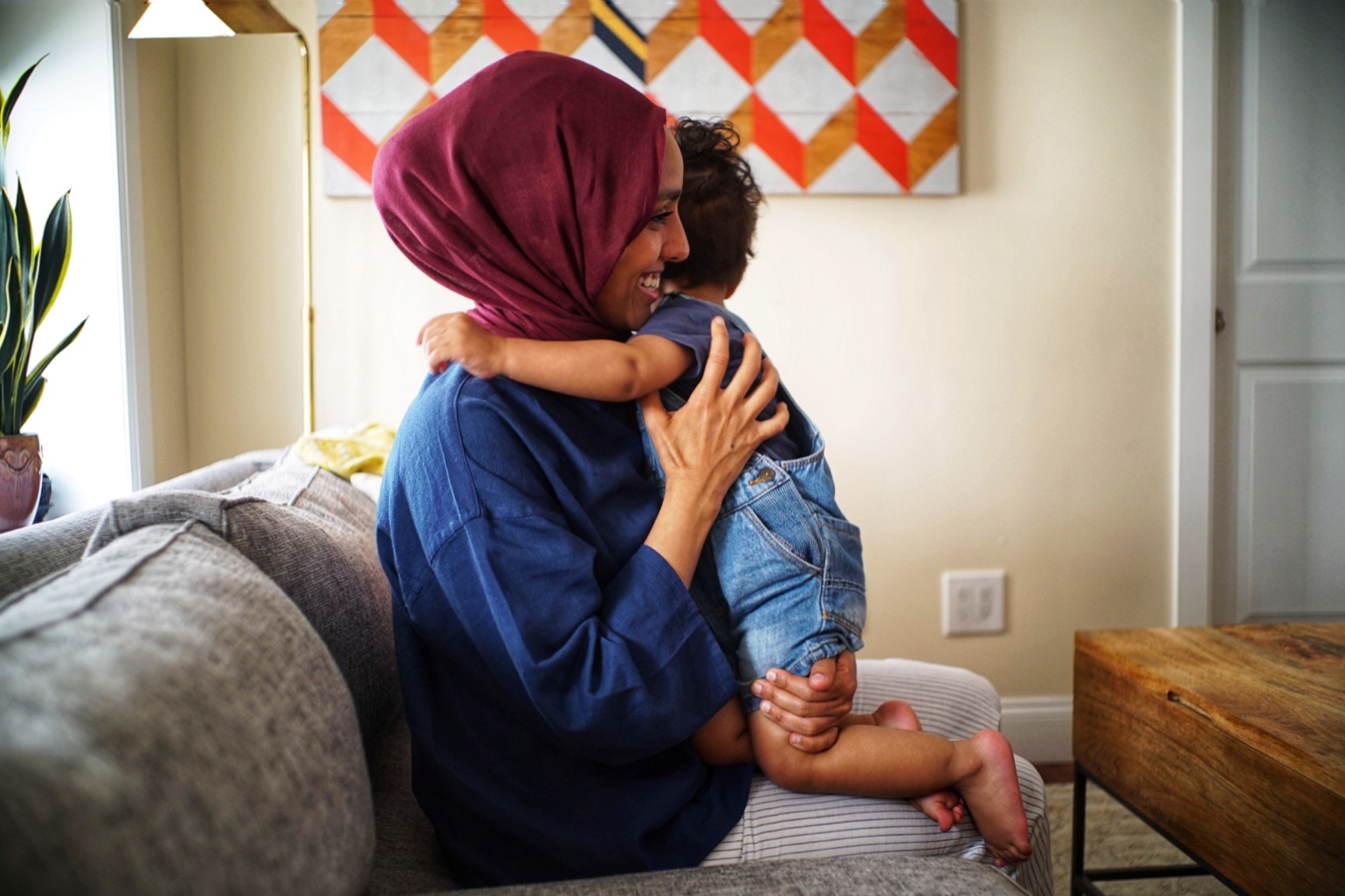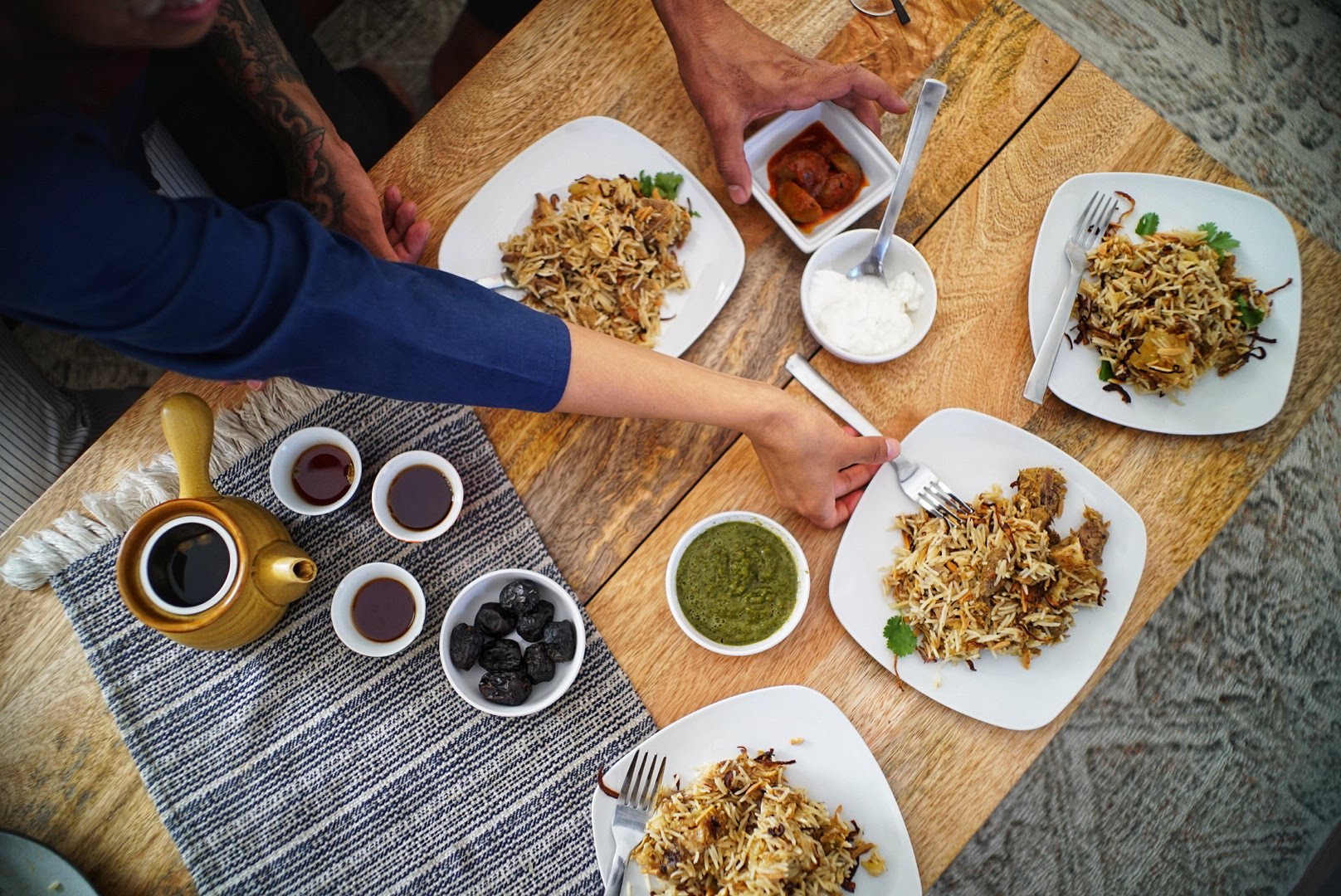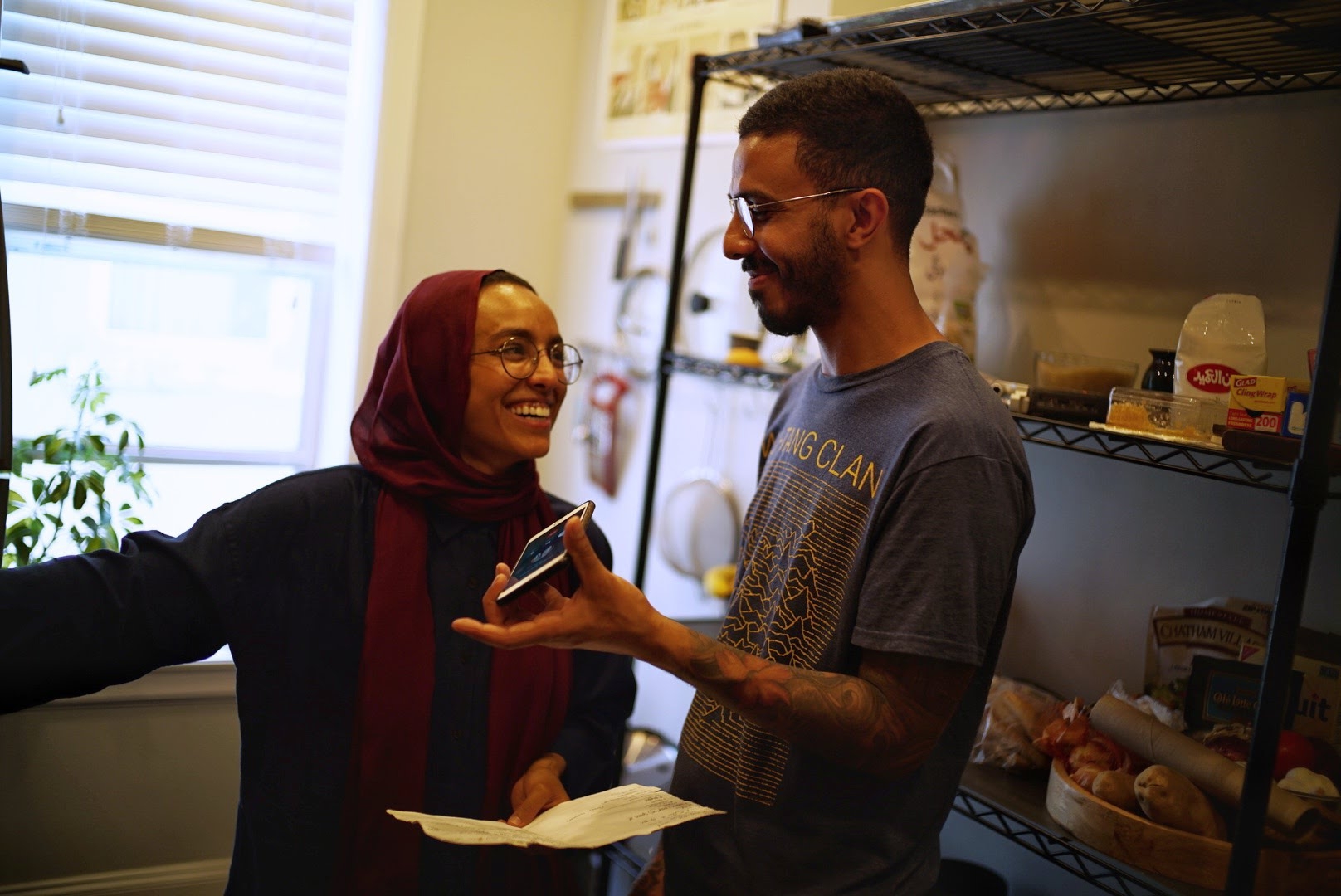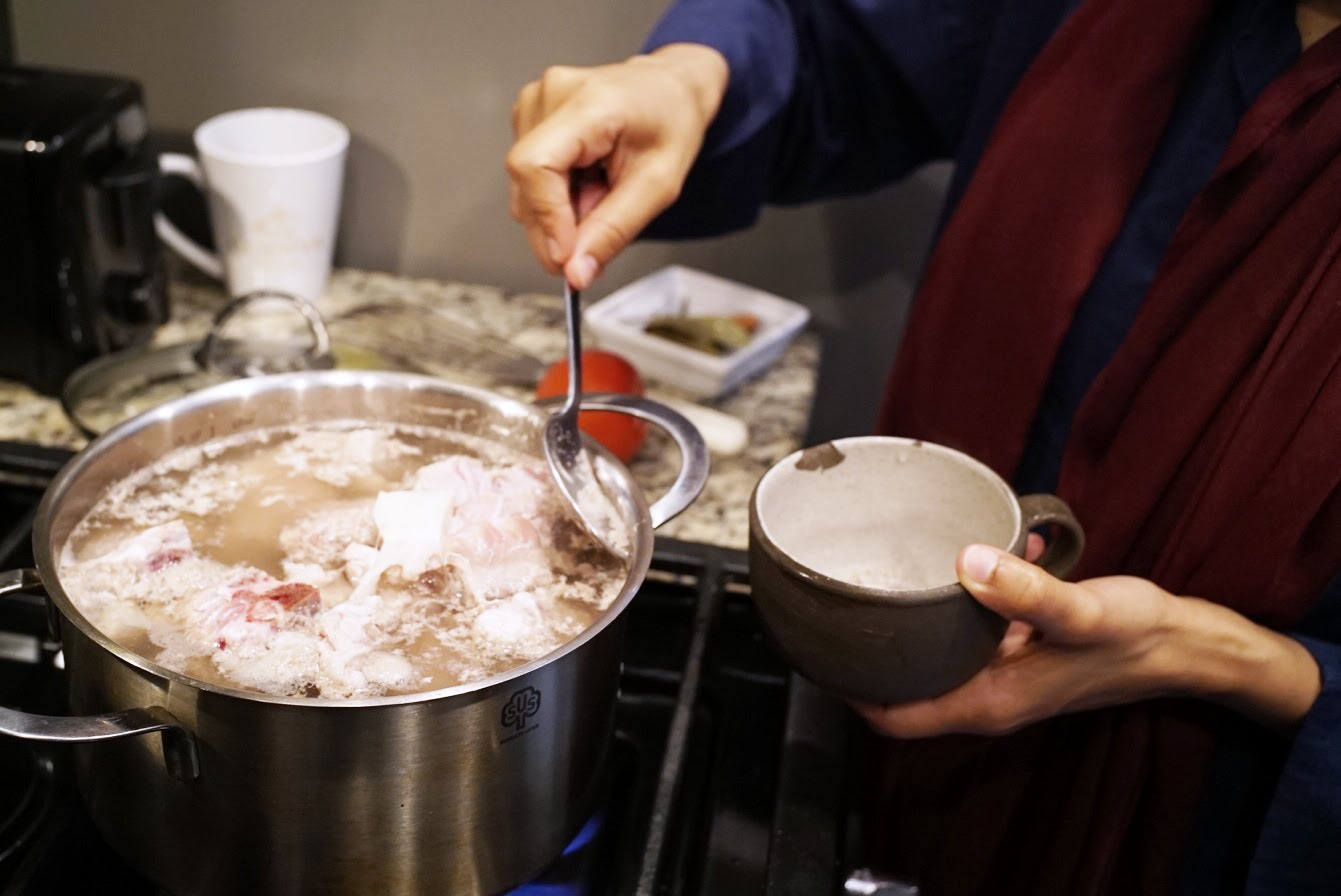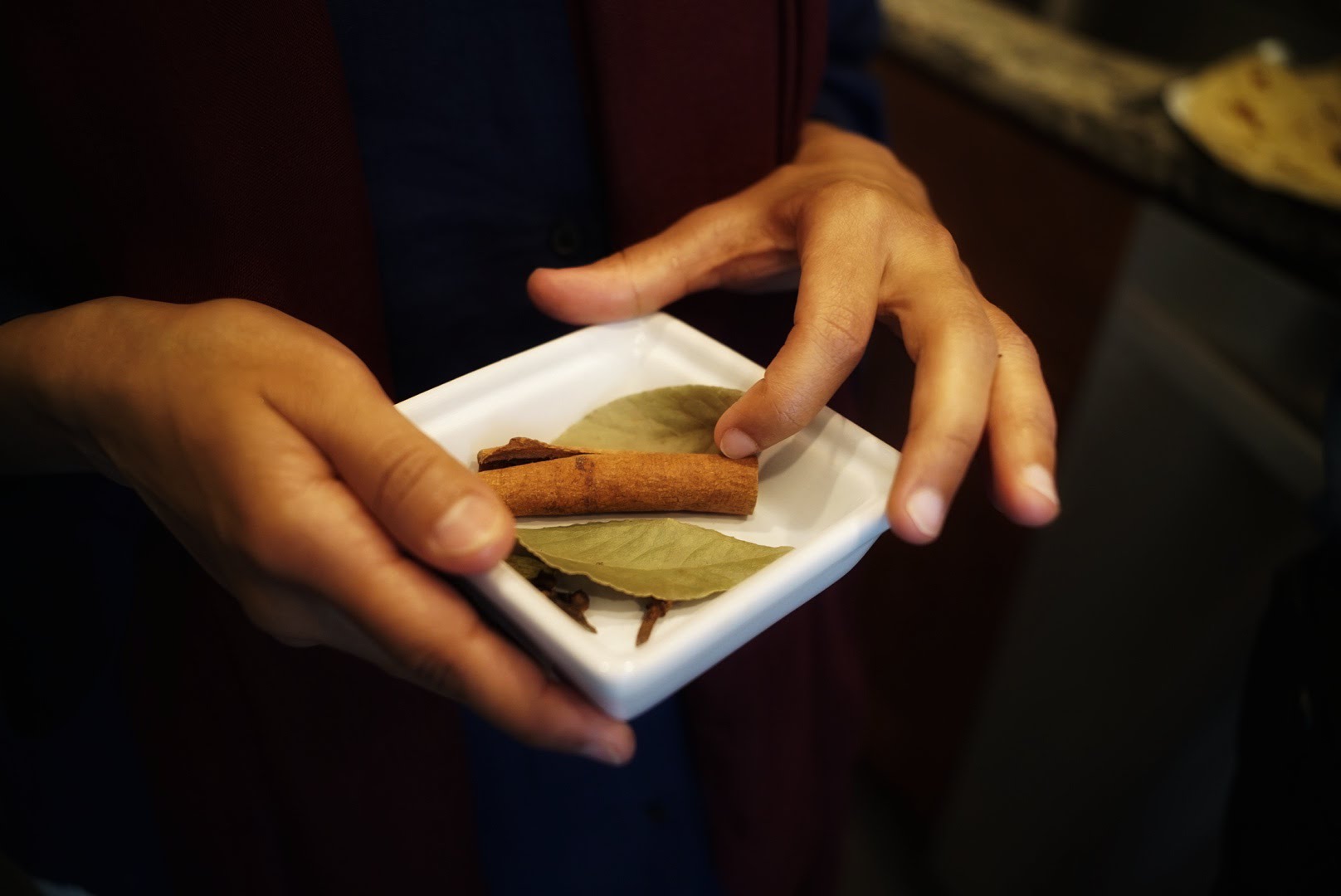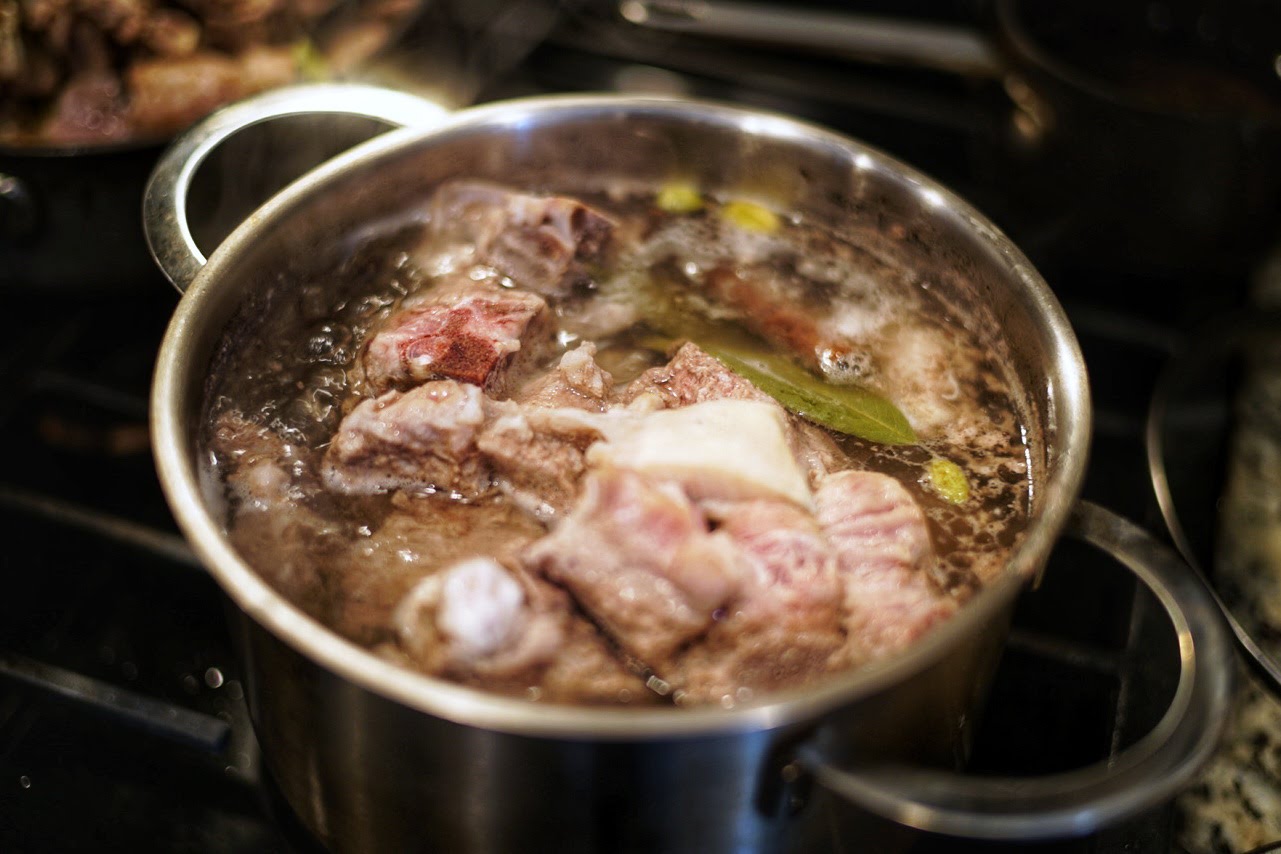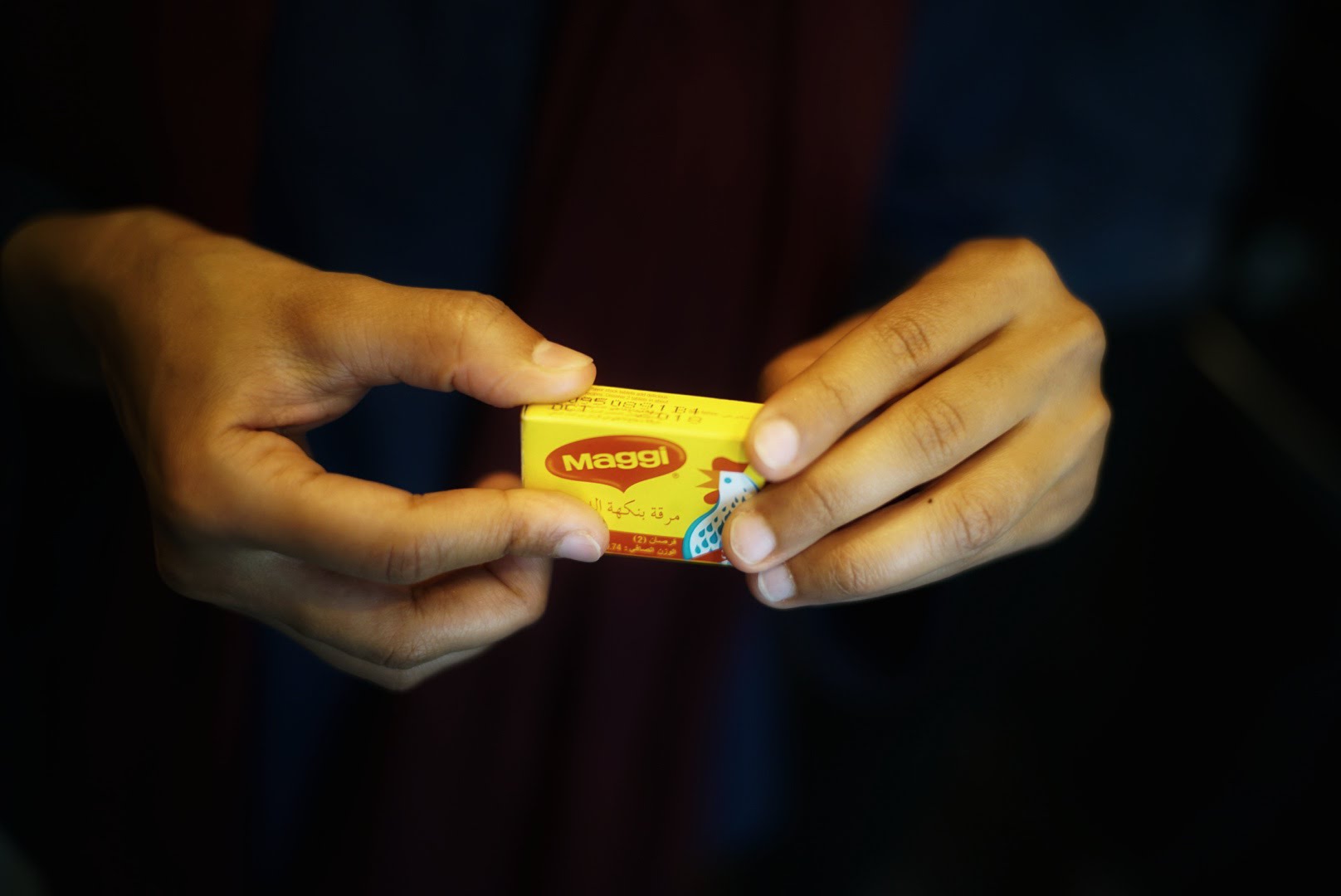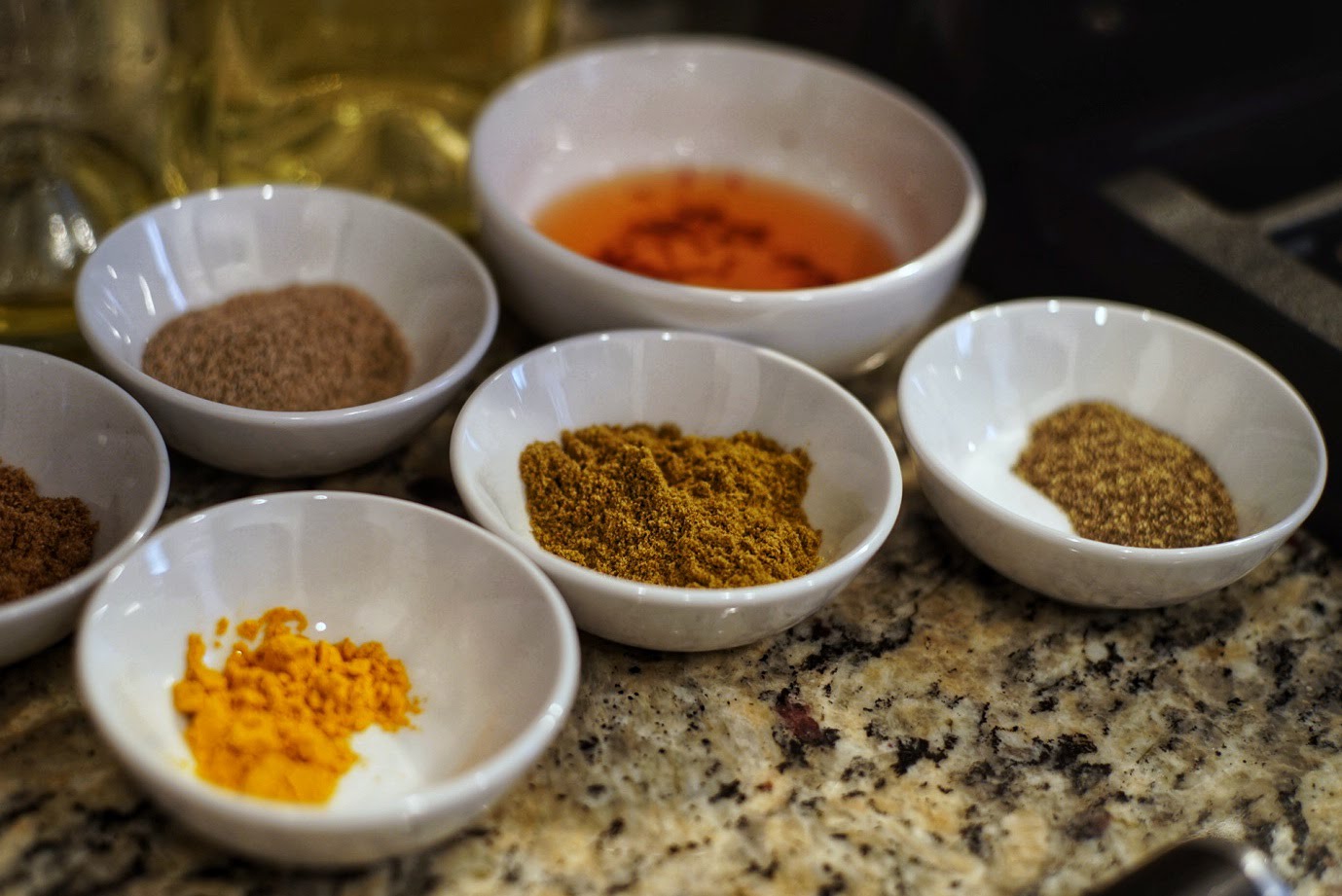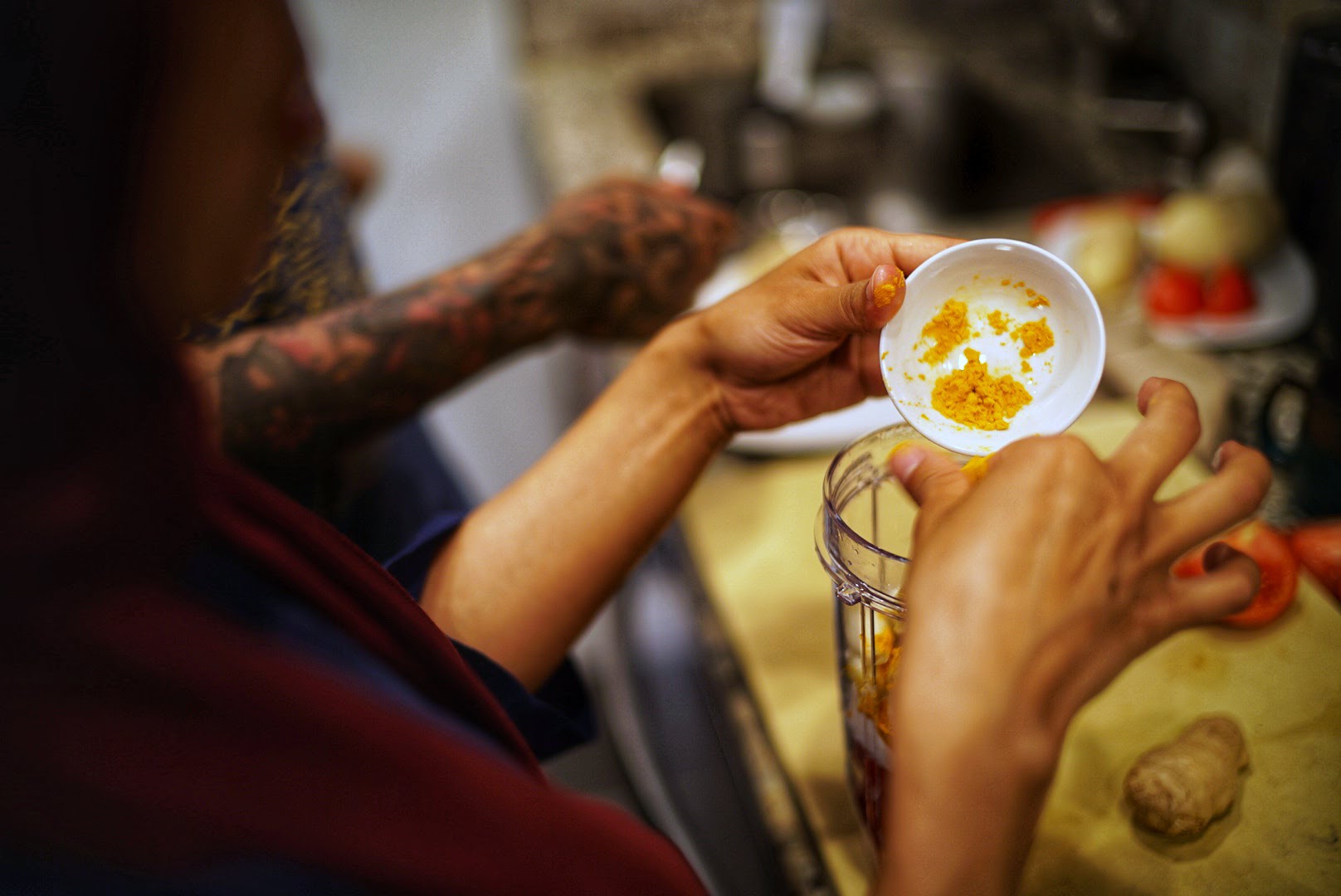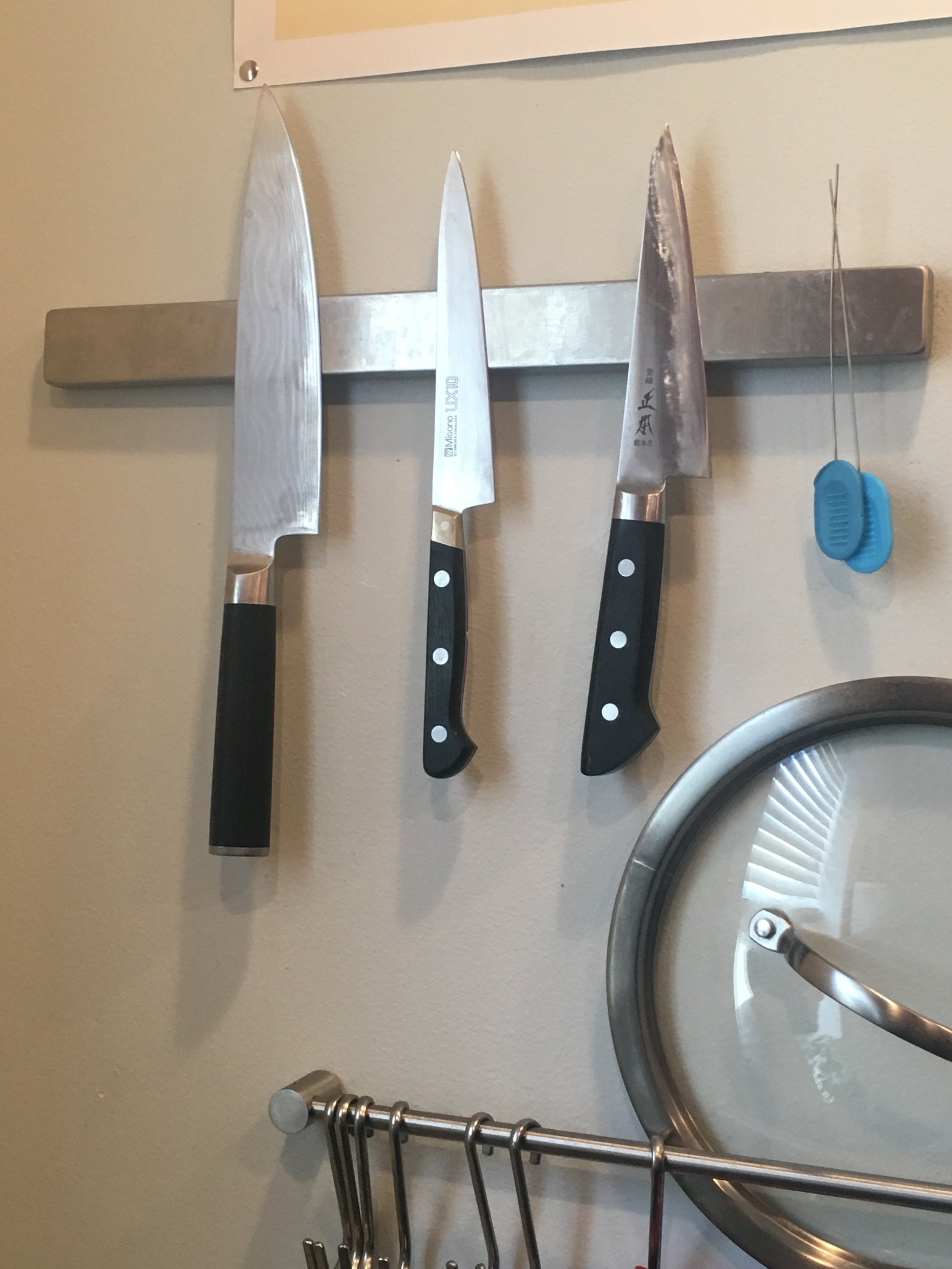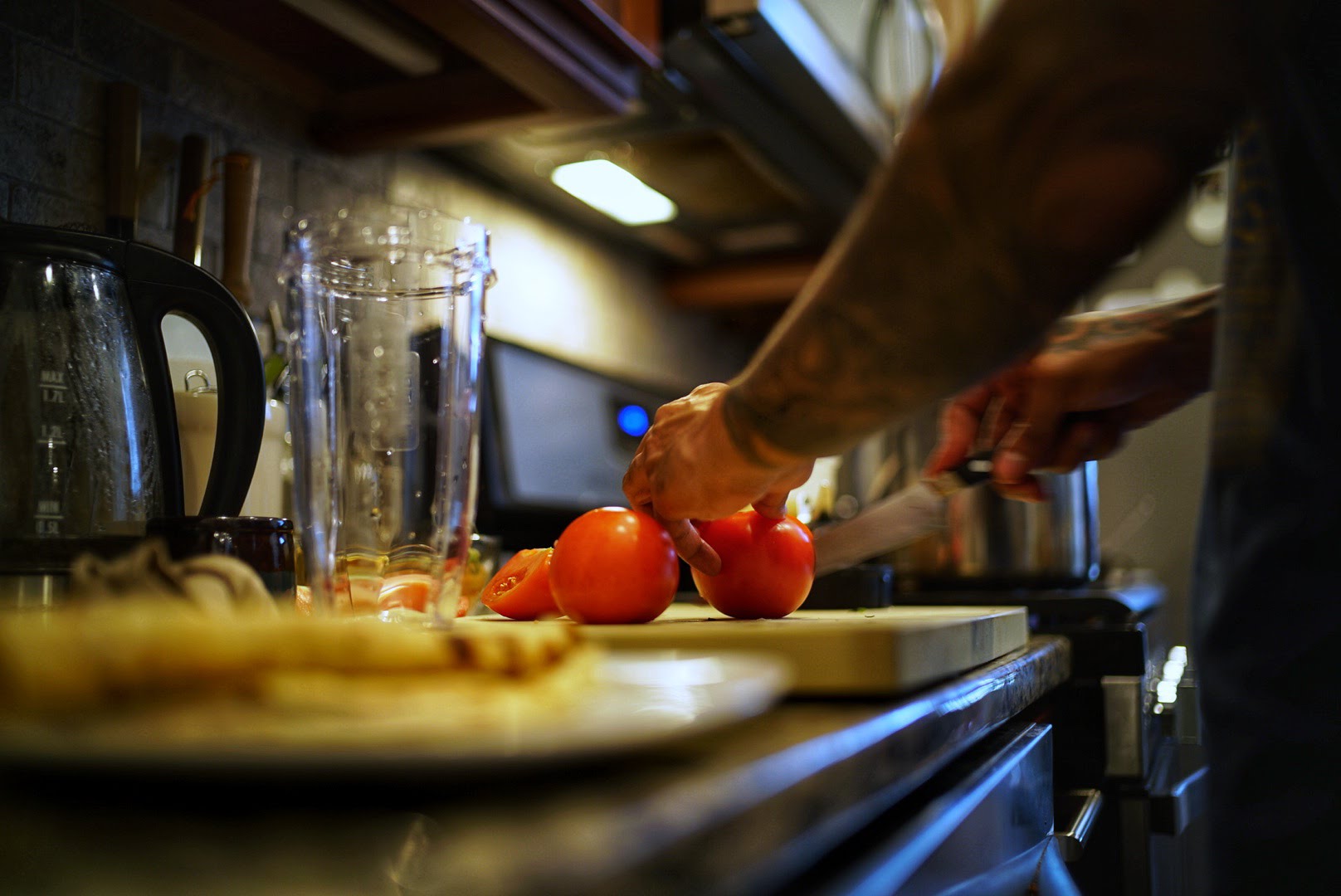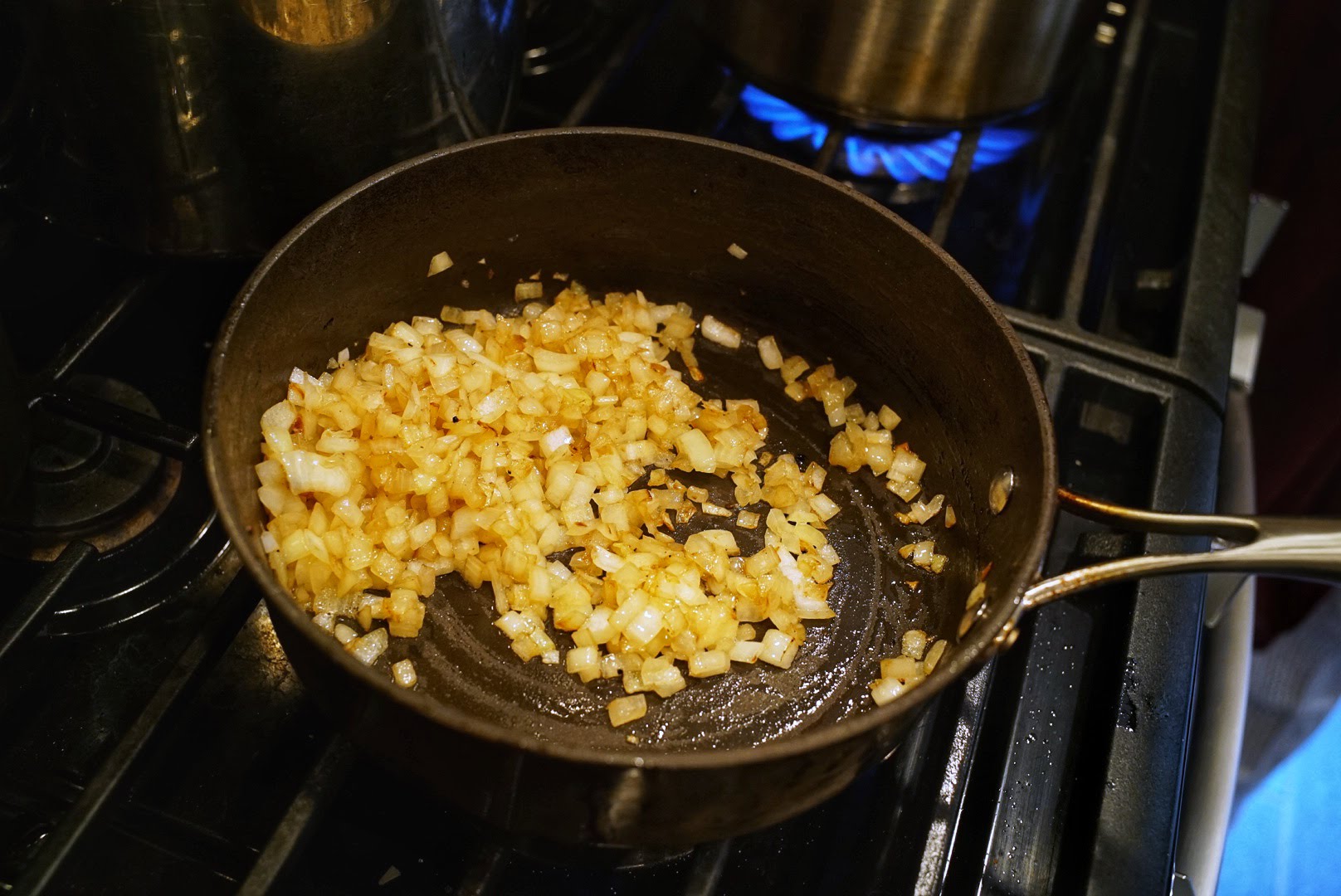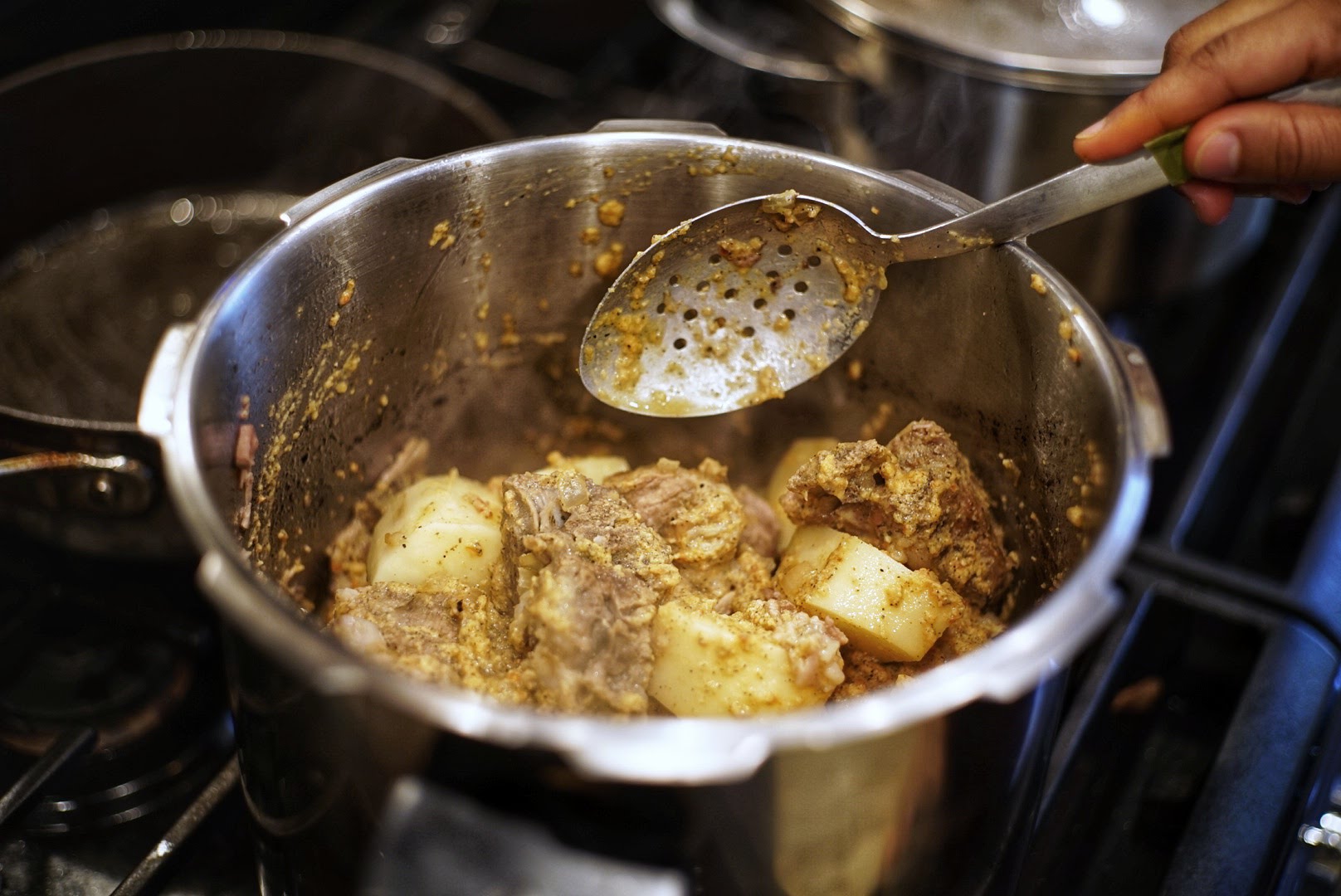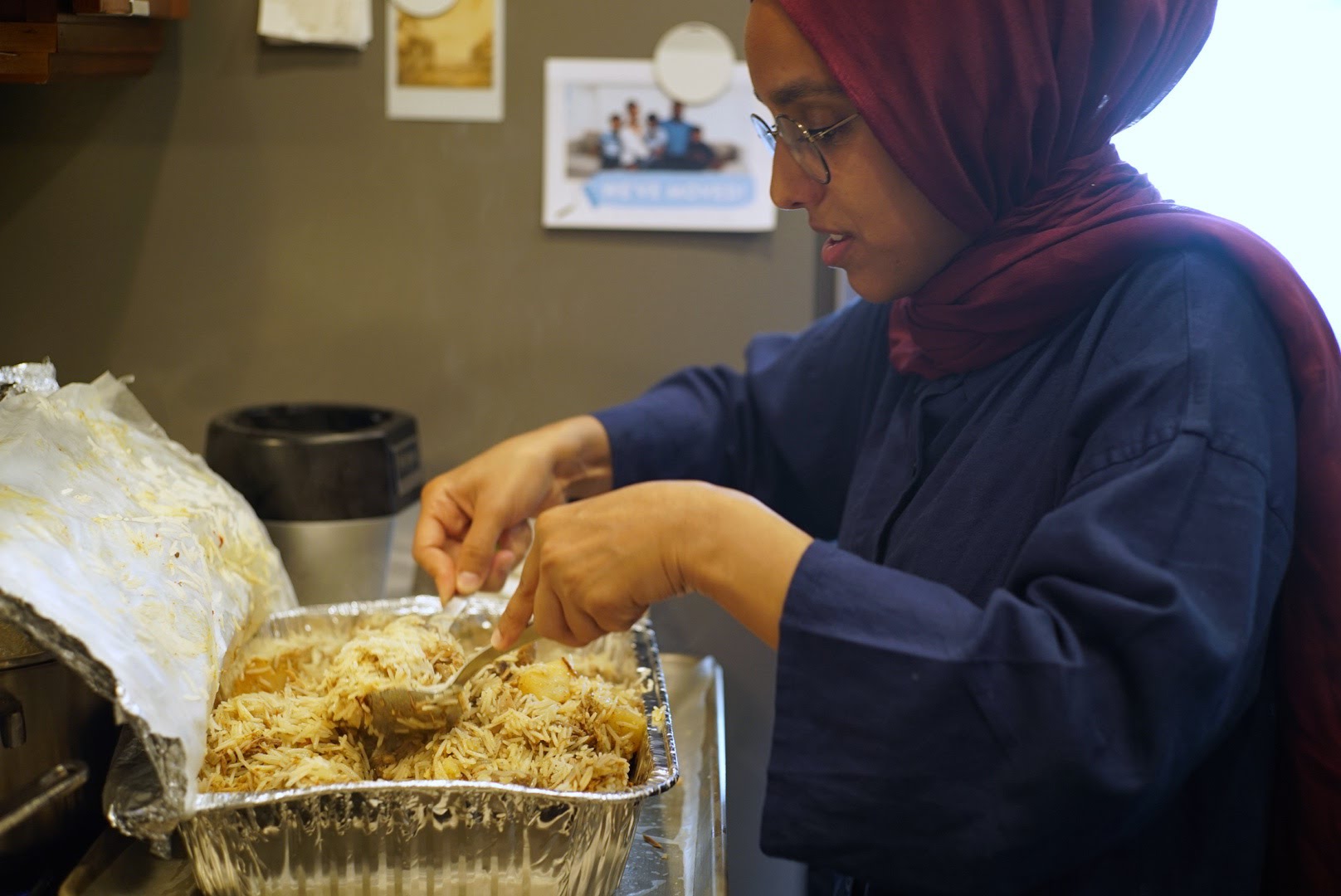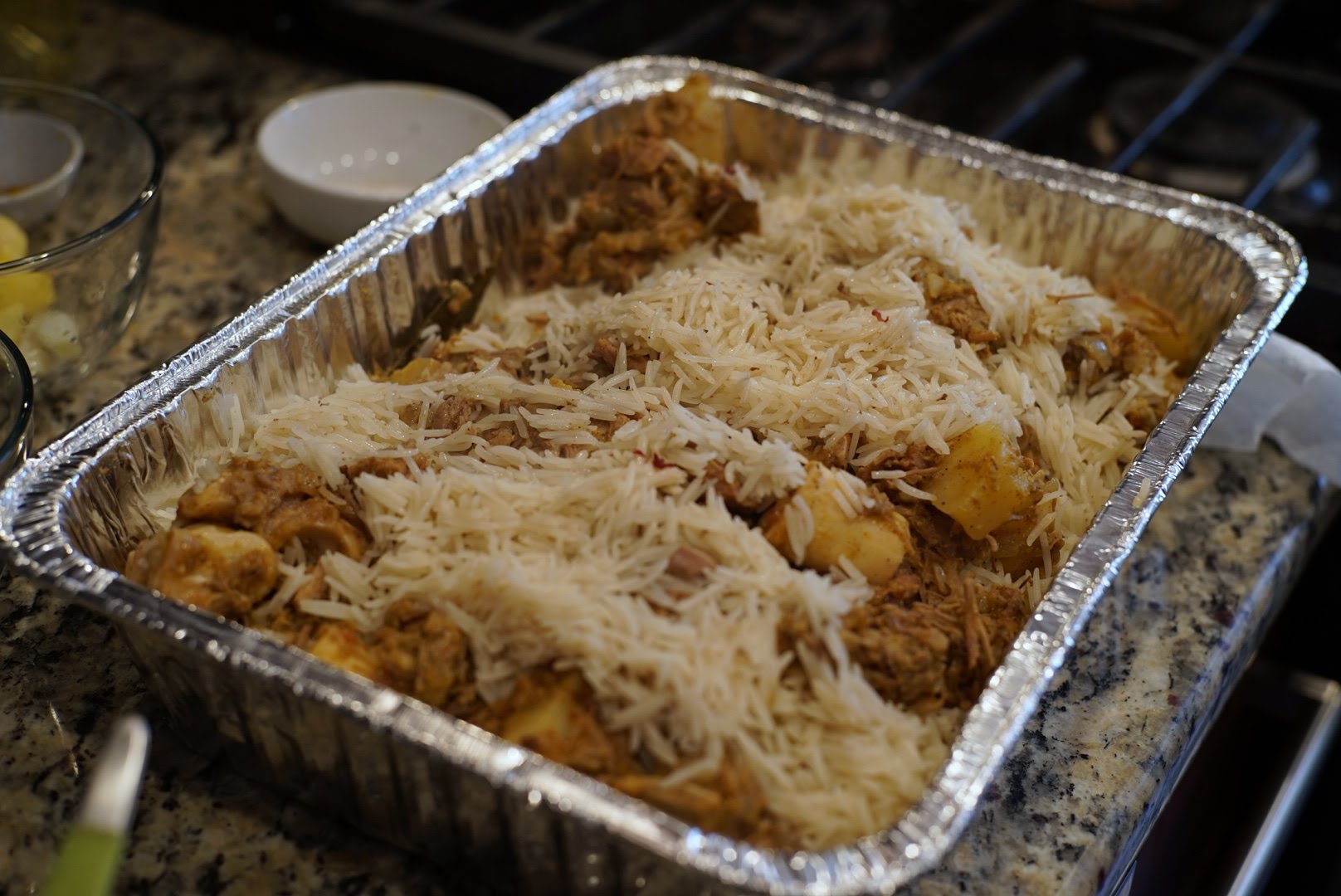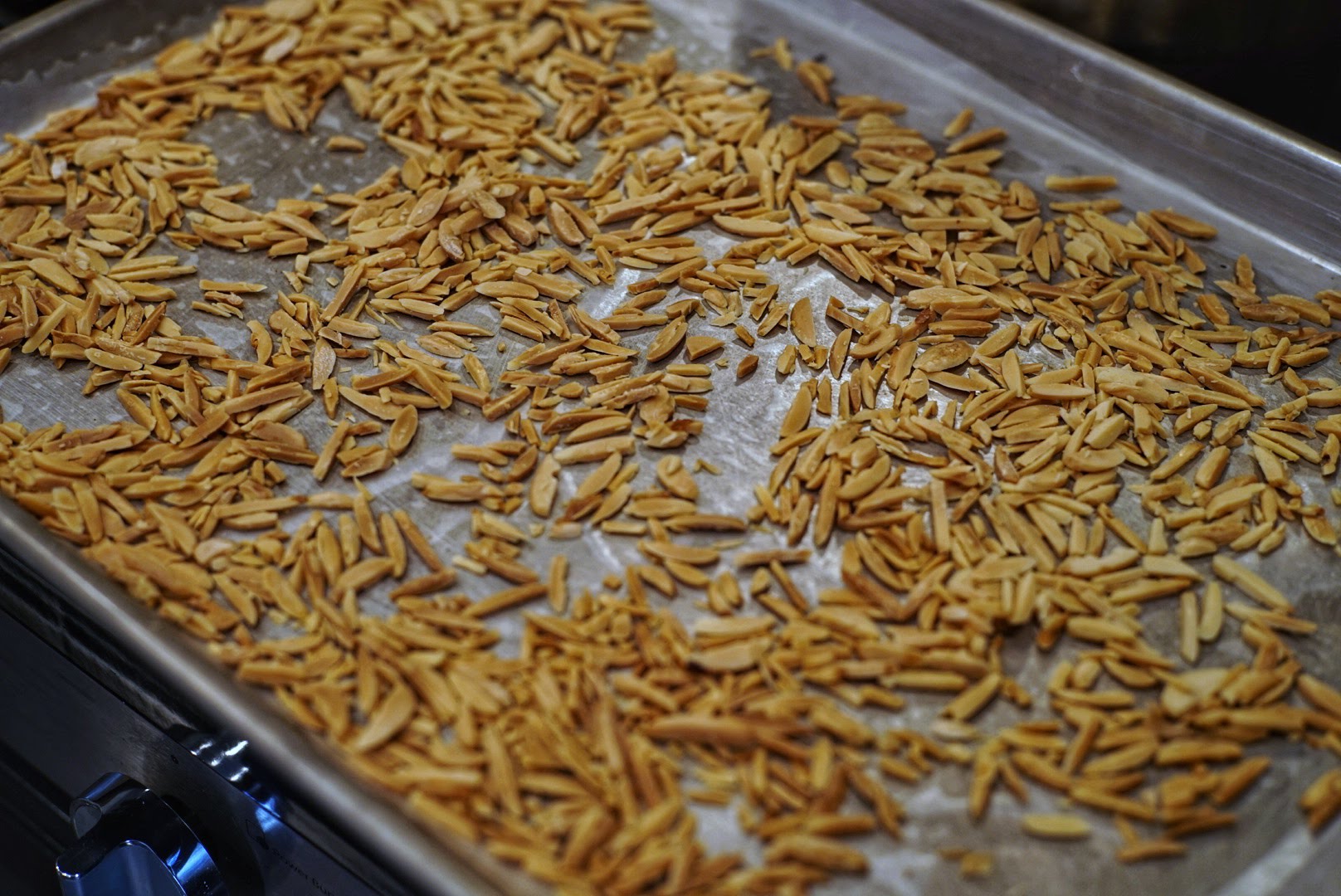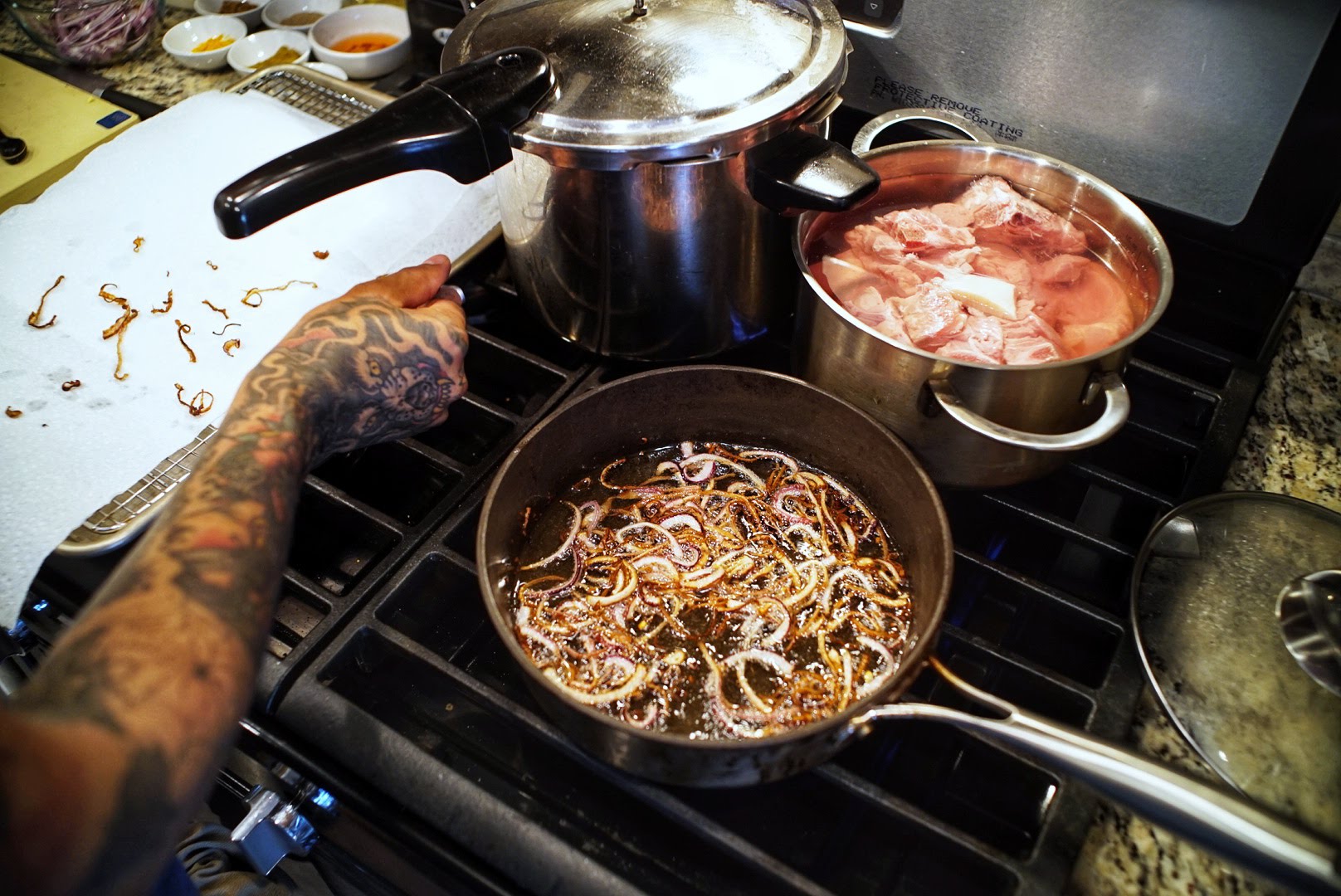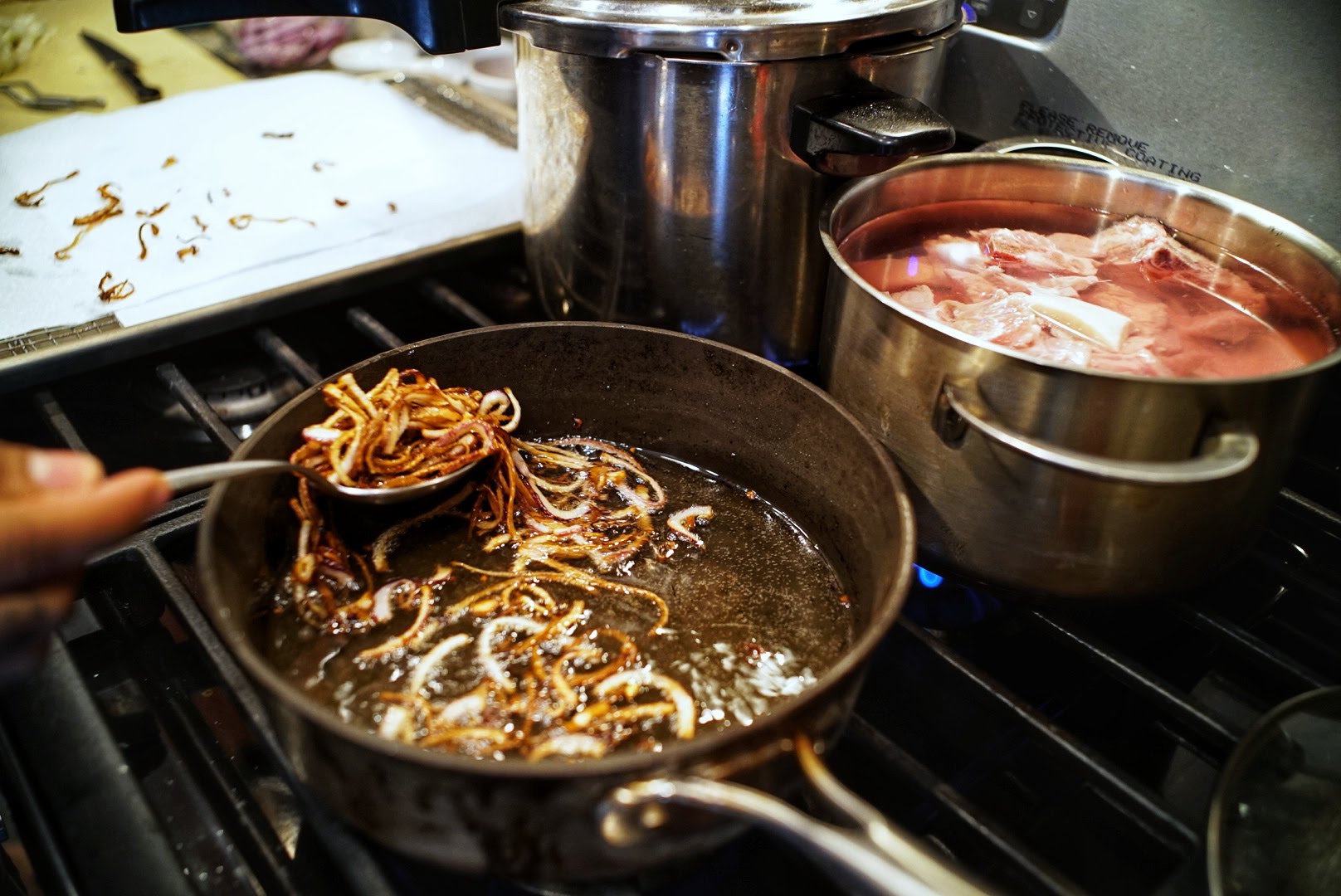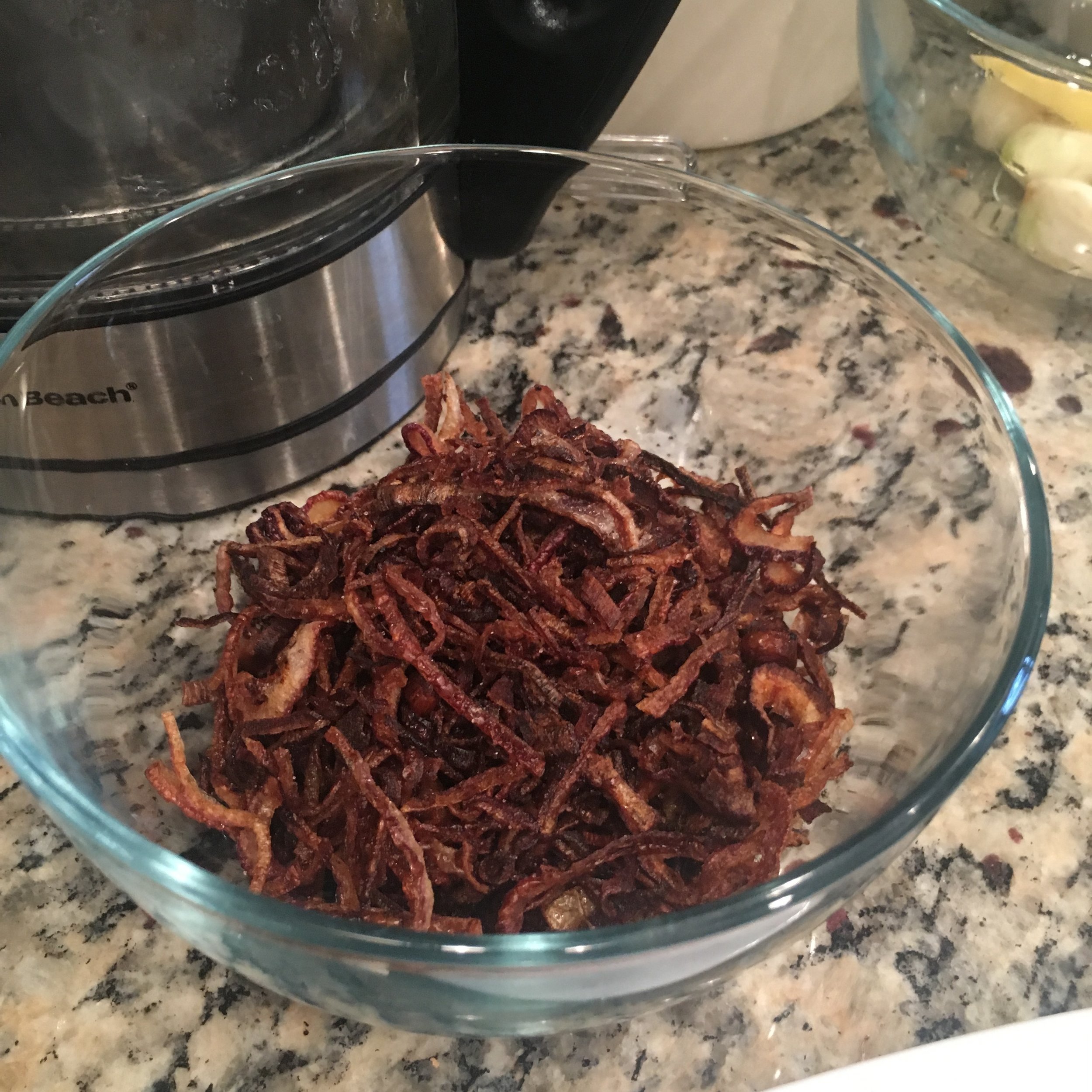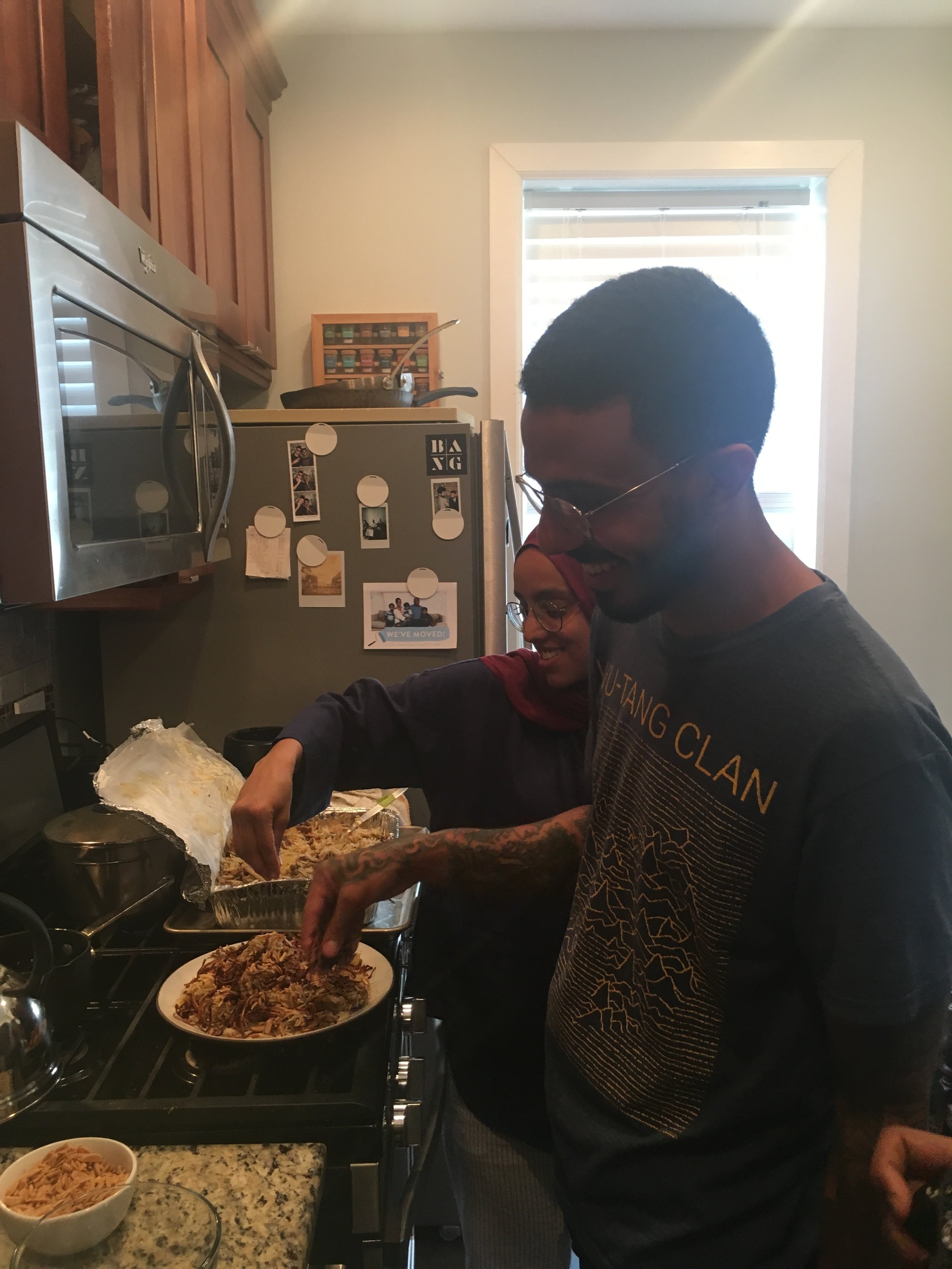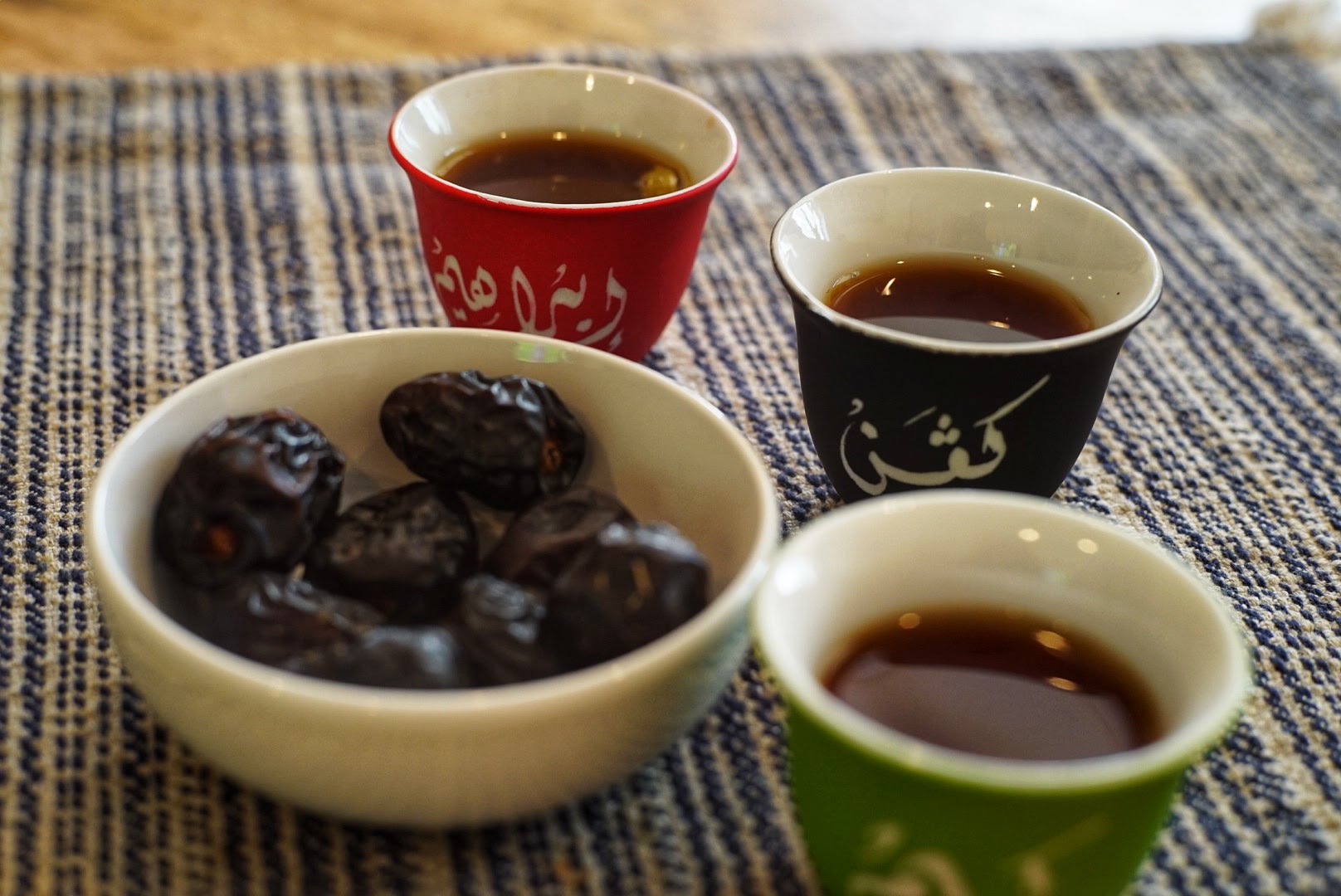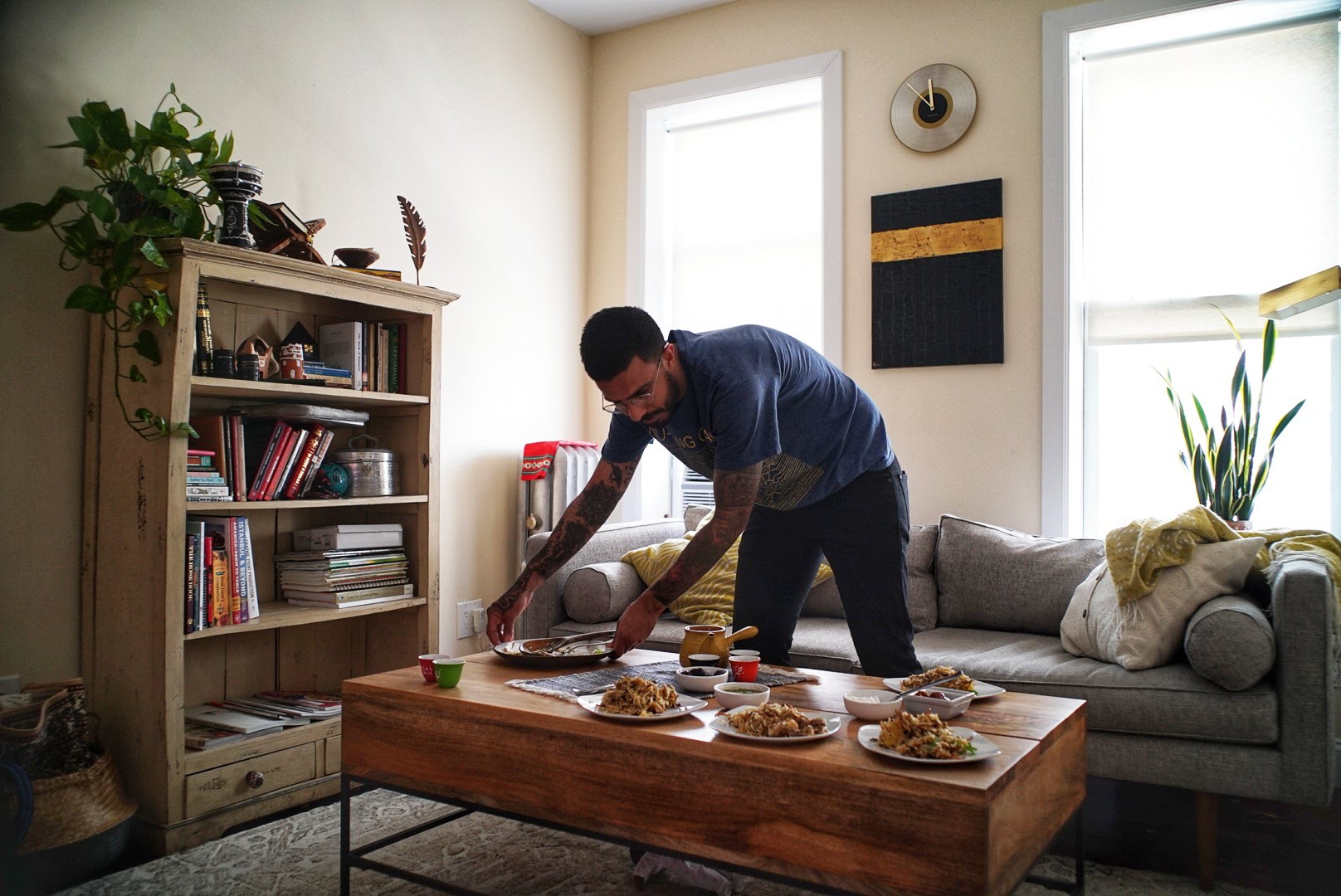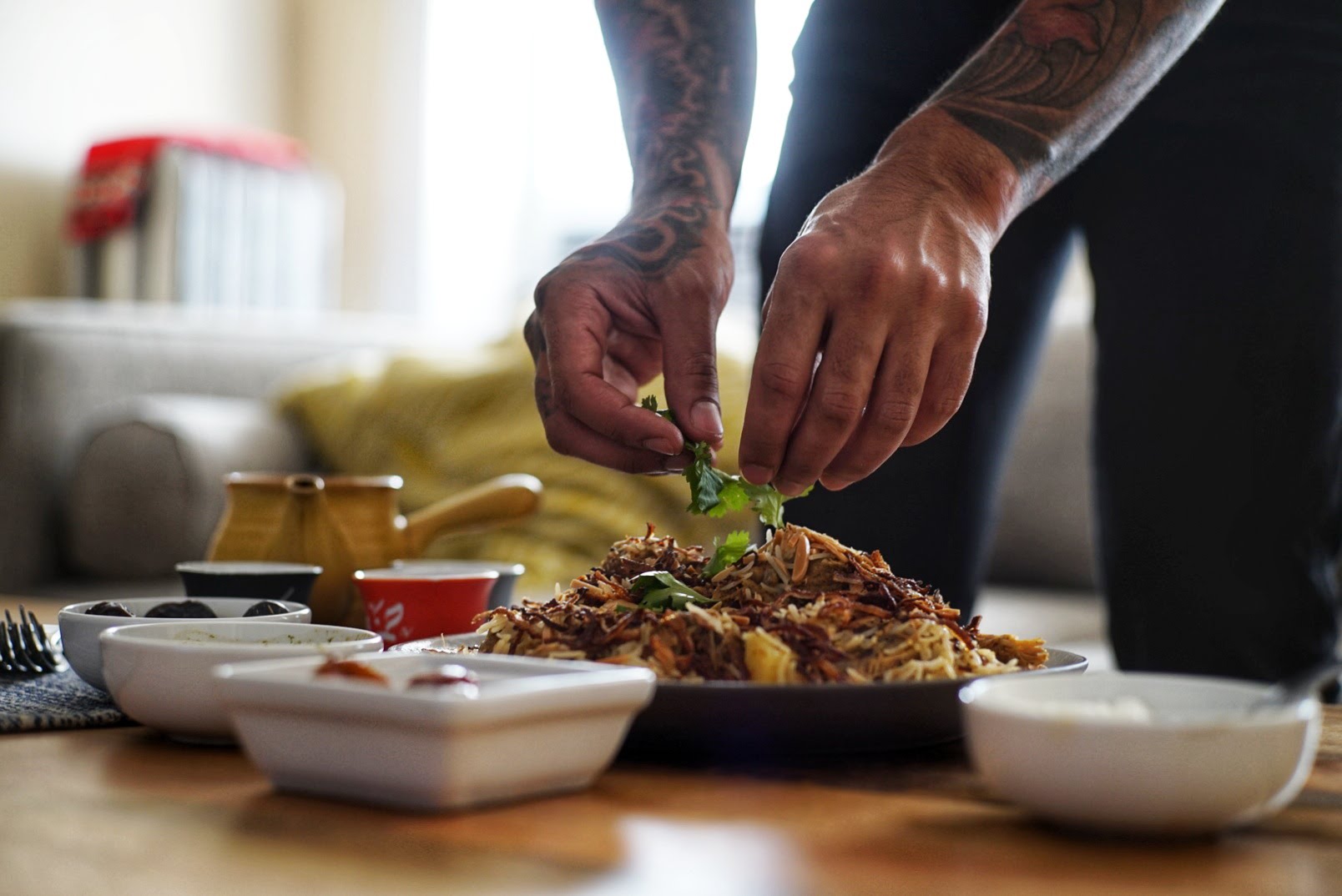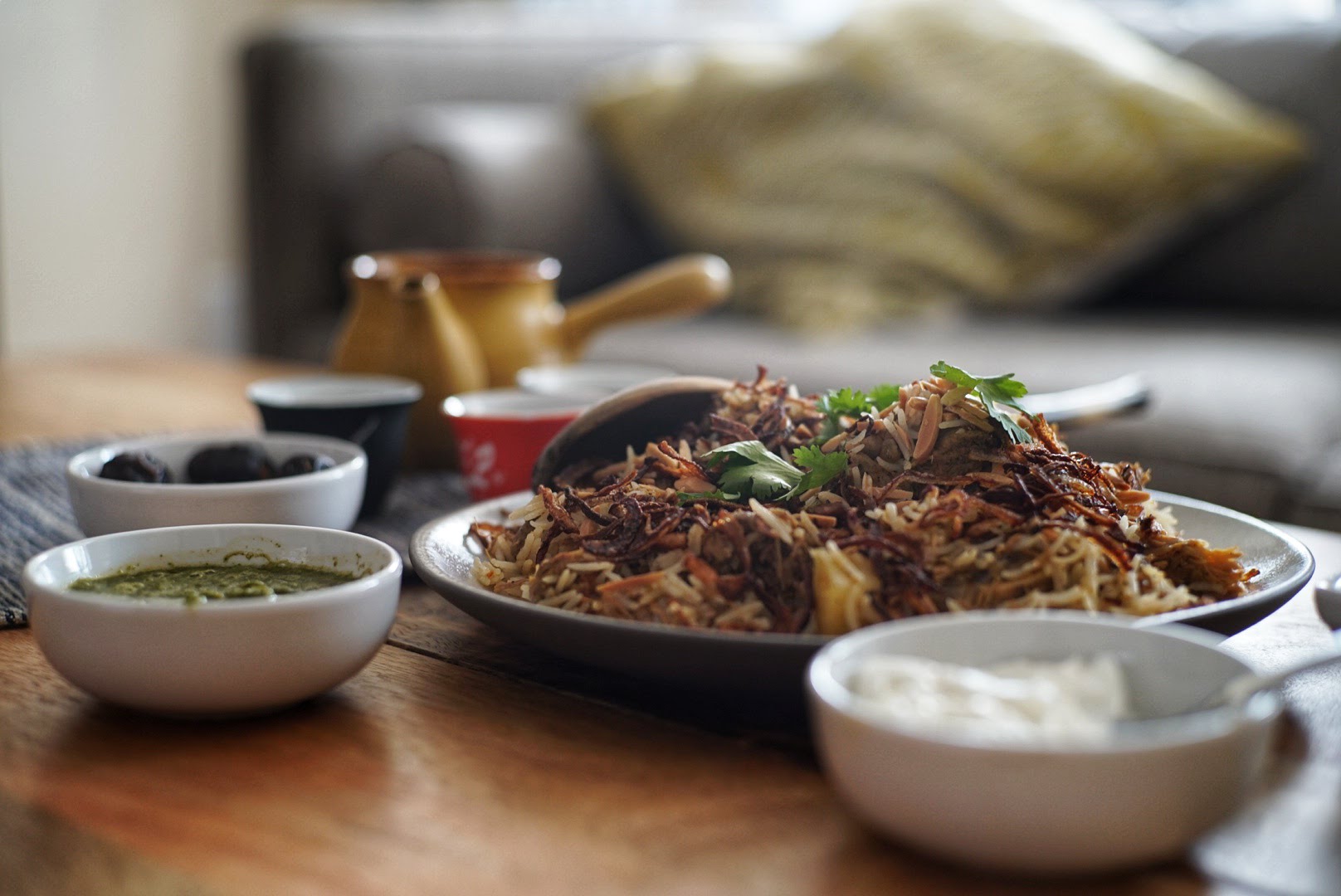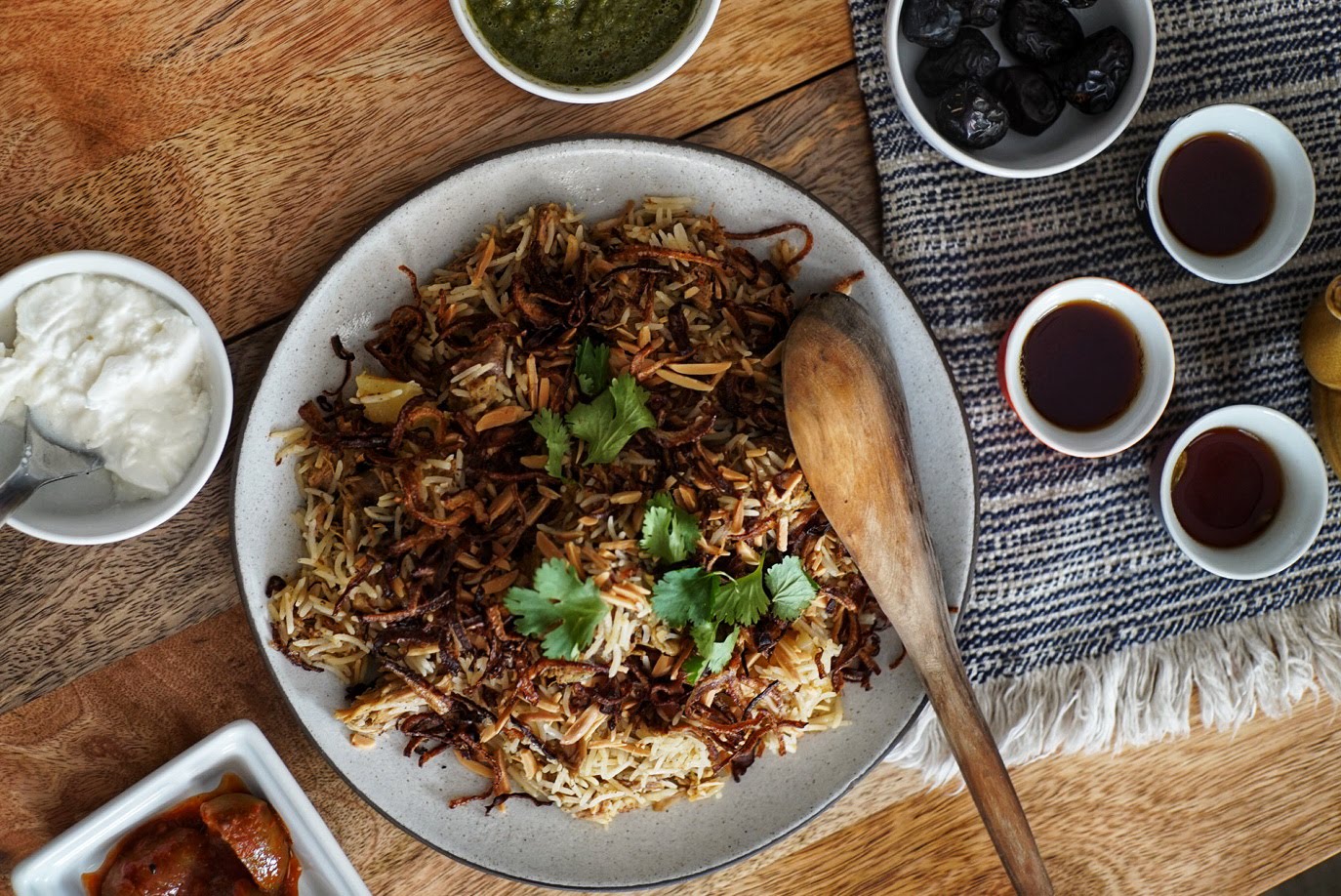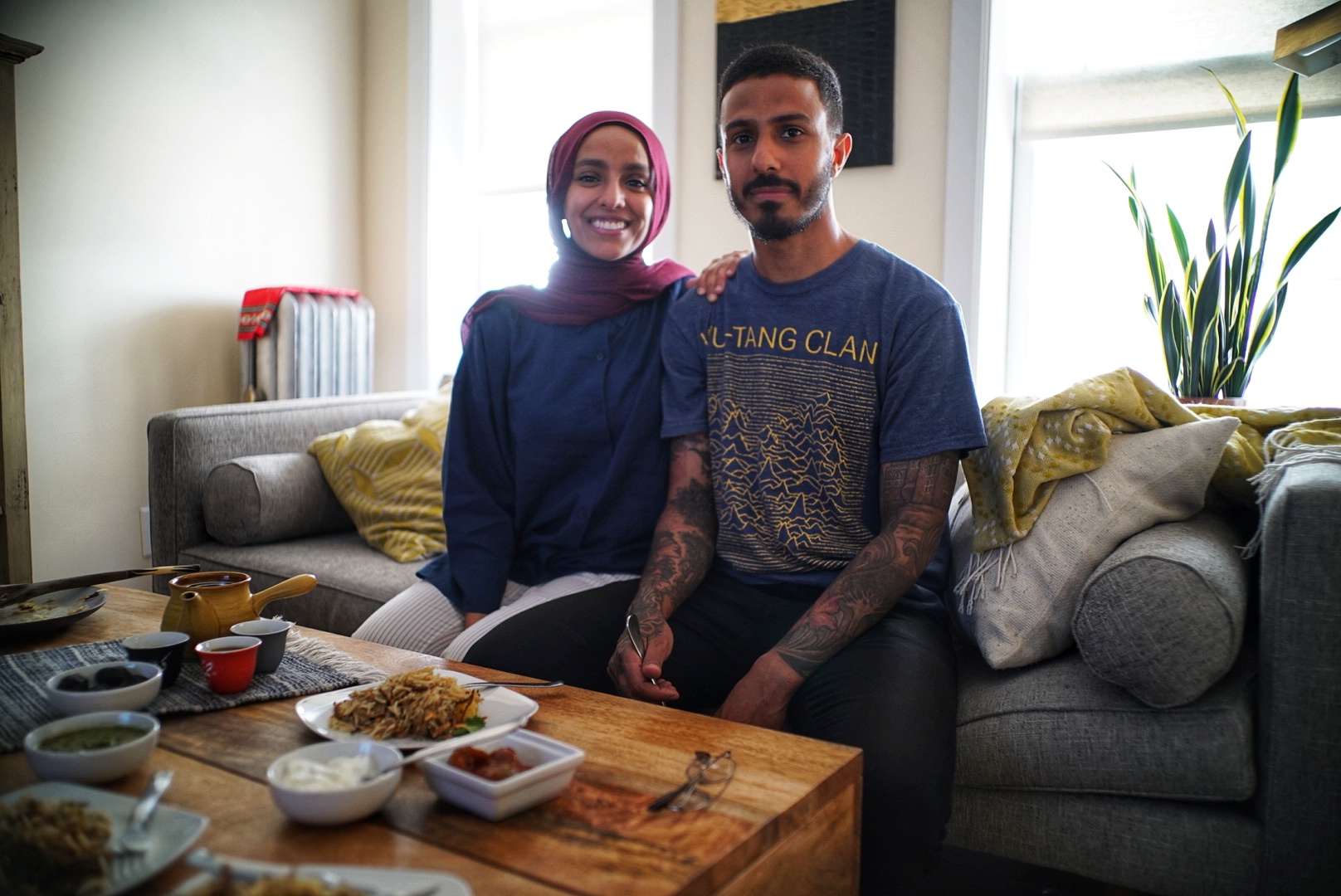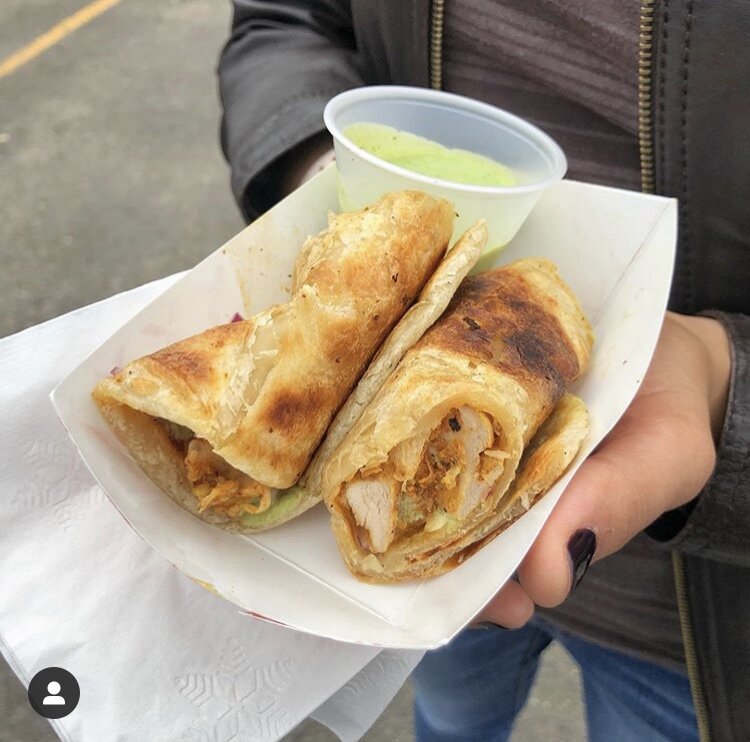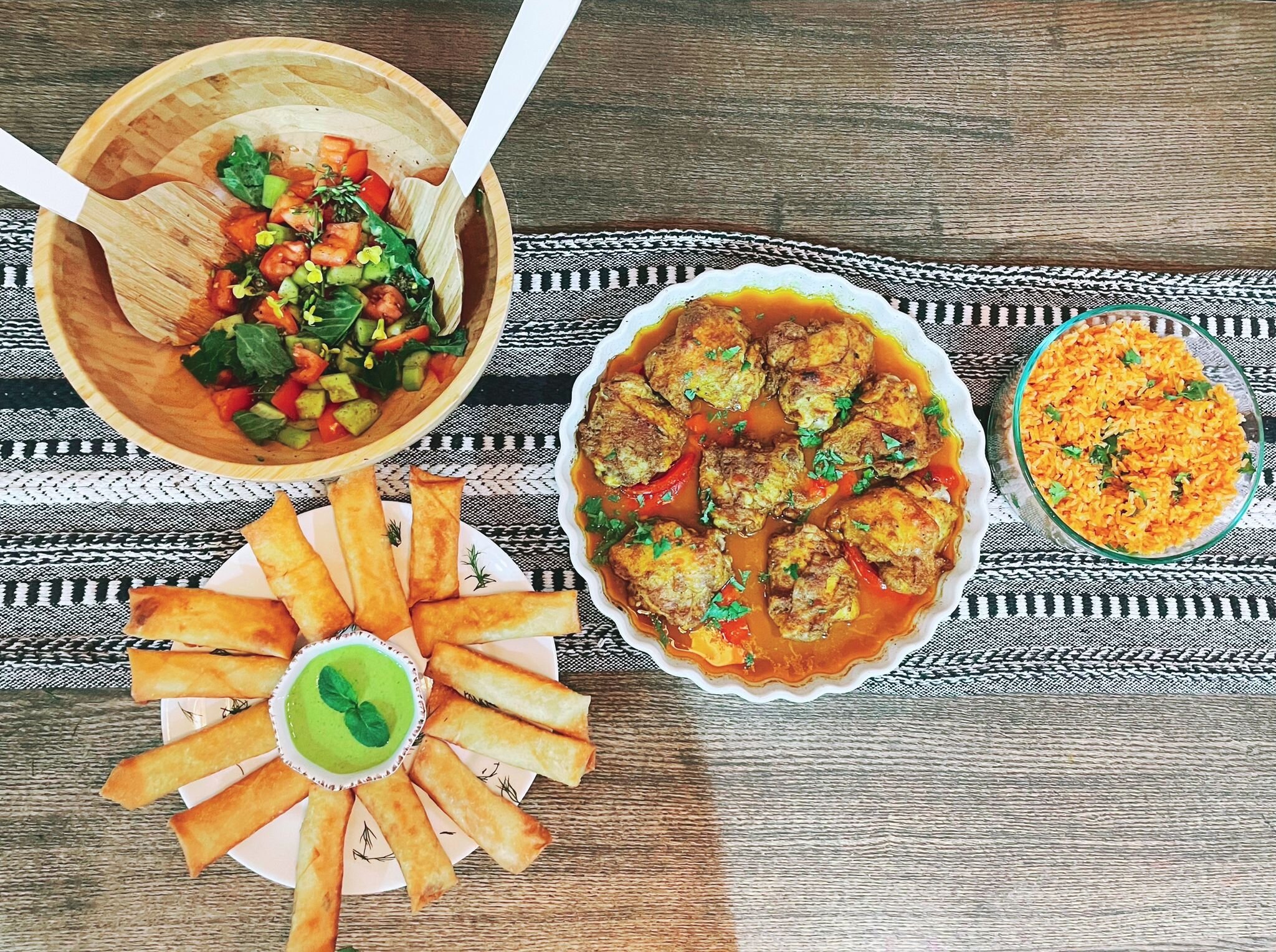Zurbian (Yemen)

Zurbian is the Yemeni version of Biryani, and is usually made for special occasions- when people gather such as weddings or Ramadan iftars, because it takes a long time to cook. Ahlam learned this recipe from her mom only recently, when her son was born. They had a lot of meat for his aqiqah (birth celebration) and had to figure out how to distribute it. Traditionally, in her mother's village, they would have given the meat to people around as is, but New York doesn't lend itself to that. Instead Ahlam's mom, Zolikha, made Zurbian, packed it in Tupperware, and they went around the block, giving it away to neighbors. "Food is a great way to connect with people, and for us, it's about generosity and community, that's really big in our culture, and this dish is kind of luxurious and shows how you honor and appreciate your guests".
Today, Ahlam is passing on the recipe to her younger brother Akram, who happens to be a chef, specializing in French and Japanese cuisine. Though neither Ahlam nor Akram grew up with a particular interest in learning to cook from their mom, it was Zolikha who insisted Akram come with her the day she went to tour Le Cordon Bleu, the world-reknowned culinary school. New to the country (she followed her husband from Yemen to Texas), Zolikha learned English by watching Julia Child on TV. Indeed, the famous chef spoke slowly enough for Zolikha to pick up on the language and, at the same time, hone her cooking skills.
Following the tour, it was Akram who applied and got in -and though it didn’t happen right away, cooking has really become his passion. But Ahlam and Akram still look to their mom for guidance in the kitchen, especially when it comes to Yemeni food. While preparing this Zurbian, Ahlam had to check in with Zolikha, as she always does, about some element she wasn't sure about. "It drives her crazy- she just wants me to write it down - but there's something I love about calling my mom to ask- it's a way to connect", Ahlam explains. "Food is such an important part of culture, and especially living in the US, growing up in a town where we didn’t have much of a Yemeni community, I feel it's important to learn those recipes so I can pass that part of our identity to my son".
That said, Ahlam didn’t always think that way. Growing up, she avoided the kitchen. She was adamant that it was not her place : “I didn't want to encourage any stereotypes that might be expected of the "Yemeni girl"”. It's only after she got married that she started to enjoy cooking, a way for her and her husband to bond (and compete!) - despite their very different cooking styles. There’s another aspect to it, Ahlam adds: “It can be at times hard, when you work behind a computer all day, to see the big picture of what you’re doing and there’s something really nice to be able to make something with your hands and see the end results right away".
Ramadan is a great opportunity to bring people around food, and Ahlam really takes great pleasure in hosting, though she thinks it important to find the right balance between being generous and being mindful of one’s privilege in the world. Now that they spend most Ramadans away from their family, Ahlam and Akram are working on building their own traditions but they are fond of their childhood memories. “During Ramadan we would go to the masjid every single night to eat and pray and that's where our friendships were formed.”
Nowadays, Ramadan is tough on Akram because he cooks for a living and can't taste anything during the Holy month so he just has to trust his other senses. The restaurant kitchen is also a rough environment /culture where a lot of shouting and cursing happens. That said, “Ramadan makes me more patient than usual, and more aware of what I say or do”, Akram explains. It's a reset button to focus on what's most important because it's easy to get lost spiritually and mentally. Ramadan is a blessing, as it gives you the opportunity to reflect and be close to God”.
To Ahlam, Ramadan is like a "feeling" more than anything. Besides the rituals, “Ramadan feels like “home”, “community”, a time to renew and refresh, and go back to the basics... It's exciting when it arrives and it's depressing when it leaves. I always know what Ramadan is at the end of Ramadan because it feels like an old, familiar friend has left”.
So gather your friends in celebration, and enjoy Zolikha’s Zurbian!
Zurbian
Ingredients for 10-12 people
3lbs lamb + 3lbs of veal (shoulder/neck/leg: you need bone for broth + nice/tender meat), cut into medium size chunks
2 red onions, thinly sliced
1 large yellow onion, diced into small pieces
2 large potatoes ,peeled and cut into medium size
4 cups of Basmati rice
1 cup slivered almonds
2 cups of peanut oil (sunflower or canola oil can be substituted)
olive oil
A pinch of saffron threads soaked in 2 tablespoons warm water
¼ cup of fresh cilantro leaves
1 small Hookah charcoal (optional)
For the broth:
3 bay leaves
3-4 cloves
1 cinnamon stick
3 whole cardamom
2 chicken Maggi stock cubes ("don't forget the Magi, it's key!” says Zolikha)
9 cups of water
For the meat sauce:
1 large tomato cut into quarters
1 head of garlic
3 inches of fresh ginger, chopped
1 tbs of ground cumin
1 tbs ground coriender
1 tbs ground cardamon
1/4 tbs turmeric
salt & pepper
1/2 cup of plain yoghurt (whole milk)
Directions
1. Wash the meat thoroughly in cold water to remove as much blood as possible
2. Place meat and 9 cups water + Maggi cubes into large pot and bring to a boil. When the foam comes to the surface, remove it with a spoon- it gets rid of all the impurities.
Pro tip from Akram: “it's called "écumer"- a French technique, and here's a tip; push the pot to one side of the flame so that the foam all gathers in one place, which makes it easier to swoop out.
3. Once most of the foam is removed, add broth ingredients to the pot, cover and allow to simmer on low for 1.5-2 hours .
4. While the meat cooks, in a pan, pour your peanut oil and add the sliced red onions. Fry until they’re a light crispy brown color (keep an eye on them as they can easily burn!) Transfer them to a paper towel to absorb any lingering oil. Add salt and set aside.
5. In the same pan, keep a bit of oil to saute your diced yellow onion for 10 mins or until they’ve lightly browned. Once cooked, set aside.
6. Place all the sauce ingredients and the saffron threads (NOT its water- set that to the side) in a blender and blend until smooth.
7. Preheat oven to 350 degree F
8. Once the meat broth has finished simmering, drain the broth into a separate pot.
9. Add the rice to the broth (that should be coooked down to 8 cups now) and allow to cook to al dente
10. In a separate pot, Add the cooked yellow onion and potatoes to the pot of meat and pour the meat sauce on top, and lightly mix it all together (be careful not to mash your meat!) Cover and cook on low-medium heat for 30 mins or until the meat is tender and falls off the bone.
11, Meanwhile, mix the almonds with a drizzle of olive oil and a pinch of salt and roast in oven for 10 mins or until browned, then set aside.
12. Once the meat has finished cooking, in a large (20x13) baking dish, add a layer of rice, and a layer of meat, and continue layering as needed.
13. Drizzle the saffron water on top, cover the dish with foil and cook in oven for 30 mins.
14. Optional: Once finished baking, light a small charcoal and place it a piece of foil on top of the rice. Add a tablespoon of the oil and quickly cover your dish again. This will add a smokey flavor to the zorbian
15. When there is no more smoke, remove the foil and slowly fold your rice and meat, mixing it all together. Be careful, you don’t want to mash yoru meat and potatoes!
16. Top with fried red onions and roasted almonds and add a few leaves of cilantro on top
17. Serve with yogurt and hot sauce on the side!
Sahawiq (Hot sauce)
half a bunch of cilantro
1 tomato
1 clove garlic
1/2 jalapeno pepper (more or less depending on your spicy preference !)
1/2 tsp ground cumin
salt & pepper
mix it all together in a blender
Photos by Omar Mullick
Stay up to date with Akram's cooking on www.akramsaid.com


